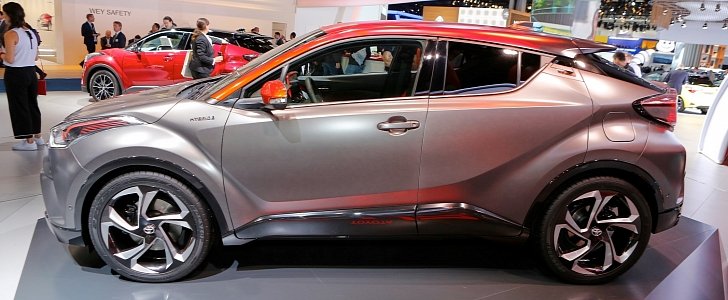Consider this when you’re shopping for a car, after you’re done weighing all the pros and cons: will your car be able to filter polluted air, or will it slowly kill you, as it’s cooling the interior through the AC system?
Emissions Analytics has studied the way 11 of the most popular cars in the UK filter the air coming in through the air conditioning system, and the results are nothing short of troubling. In the case of Toyota C-HR, which happens to rank uppermost in the buyers’ list of preferences, they’re downright abysmal, The Sunday Times reports.
If you’re driving on a busy road, the air-con is literally killing you because the filters do very little or almost nothing in terms of removing the toxic particles from exhaust.
Speaking in concrete figures, the Toyota C-HR came out the worst, with only 1% efficiency in filtering toxic particles. Considering that there are about 57,000 of them in every cubic centimeter of roadside air sample, and that we inhale about 500cc of air in one breath, that would mean we also breathe in about 28 million of particles. As pedestrians.
Common sense would dictate that the AC’s filters would work to keep some of those particles out of the car. Sadly, that’s not the case.
The Volkswagen Polo and Ford Fiesta also performed badly on the pollution test, with top filtering percentages going to Vauxhall Astra and Mercedes-Benz E-Class, with 82 and 90% efficiency, respectively.
“We were shocked at the differences between cars,” Nick Molden, chief executive of Emissions Analytics, tells the publication. “Drivers can be exposed to high pollution levels while believing themselves to be protected by the air filtration and ventilation system.”
“There is little data to tell consumers what they are buying. So if you have kids with asthma or other conditions you cannot tell if the car you are buying will protect them,” he adds.
He explains that part of the reason this happens is lack of standards and state regulations, which means makers can impose their own rules. However, since this is a customer-oriented industry, there is hope for improvement, now that this information out there.
In response to the findings, James Clark of Toyota UK says they had no knowledge of this fact and would be looking into how the results were obtained.
If you’re driving on a busy road, the air-con is literally killing you because the filters do very little or almost nothing in terms of removing the toxic particles from exhaust.
Speaking in concrete figures, the Toyota C-HR came out the worst, with only 1% efficiency in filtering toxic particles. Considering that there are about 57,000 of them in every cubic centimeter of roadside air sample, and that we inhale about 500cc of air in one breath, that would mean we also breathe in about 28 million of particles. As pedestrians.
Common sense would dictate that the AC’s filters would work to keep some of those particles out of the car. Sadly, that’s not the case.
The Volkswagen Polo and Ford Fiesta also performed badly on the pollution test, with top filtering percentages going to Vauxhall Astra and Mercedes-Benz E-Class, with 82 and 90% efficiency, respectively.
“We were shocked at the differences between cars,” Nick Molden, chief executive of Emissions Analytics, tells the publication. “Drivers can be exposed to high pollution levels while believing themselves to be protected by the air filtration and ventilation system.”
“There is little data to tell consumers what they are buying. So if you have kids with asthma or other conditions you cannot tell if the car you are buying will protect them,” he adds.
He explains that part of the reason this happens is lack of standards and state regulations, which means makers can impose their own rules. However, since this is a customer-oriented industry, there is hope for improvement, now that this information out there.
In response to the findings, James Clark of Toyota UK says they had no knowledge of this fact and would be looking into how the results were obtained.




